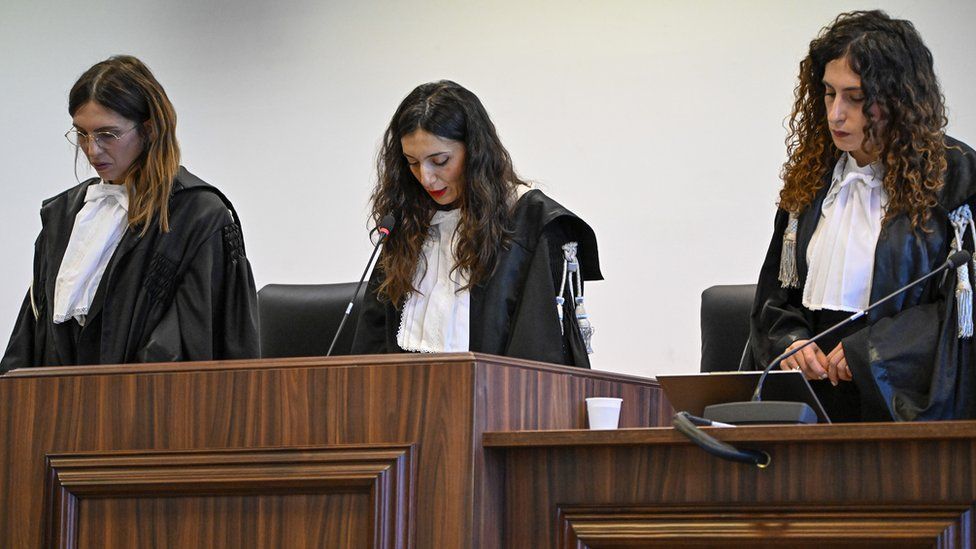-

-
-
Loading

Loading

In one of Italy's largest mafia trials in decades, over 200 defendants connected to the 'Ndrangheta were found guilty and collectively sentenced to over 2,200 years in prison. The trial lasted three years and covered a range of crimes, including extortion and drug trafficking. Despite the verdicts, there is still the possibility of appeals. The 'Ndrangheta is a highly influential criminal organization operating in Europe. This trial highlighted the group's extensive influence on the politics and society of southern Italy. The convictions of individuals in positions of power such as businessmen, politicians, and local officials demonstrated the far-reaching impact of organized crime on Italian institutions. One notable figure sentenced was Giancarlo Pittelli, a lawyer and former senator from Silvio Berlusconi's party, who received an 11-year sentence for colluding with a mafia-type organization. Other convictions included civil servants, professionals from various industries, and high-ranking officials who played a vital role in the 'Ndrangheta's infiltration of the legitimate economy and state institutions. On the other hand, more than 100 defendants were acquitted. Due to concerns for their safety, the judges overseeing the trial were placed under police protection. The 'Ndrangheta originated in the impoverished region of Calabria and is considered one of the world's most dangerous criminal organizations, controlling a significant portion of Europe's cocaine market and boasting an estimated annual turnover of $60 billion. The trial took place at a converted call center in Lamezia Terme, which was transformed into a high-security courtroom equipped with cages to hold the defendants. It was large enough to accommodate around 600 lawyers and 900 witnesses. The charges faced by the defendants included murder, extortion, drug trafficking, loan sharking, abuse of office, and money laundering. Over the course of three years, the trial revealed how the 'Ndrangheta expanded its influence beyond Italy, operating in places like South America and Australia. The syndicate infiltrated the local economy, public institutions, and even the healthcare system, rigging public tenders and bribing officials. The trial was the largest of its kind since the 1980s and involved the examination of thousands of hours of testimony. Former mobsters turned informants provided crucial information about the Mancuso family and their associates, who exerted significant control over the province of Vibo Valentia. Anna Sergi, a criminology professor at the University of Exeter, noted that the trial not only confirmed convictions of traditional mafiosi but also highlighted the involvement of white-collar workers, offering a more comprehensive view of the province and the connections between various mafia clans. The majority of the defendants were arrested in December 2019 after an extensive investigation across 11 Italian regions that began in 2016. Approximately 2,500 officers participated in raids targeting suspects in the area predominantly controlled by the Mancuso clan. More than 50 former mafia members cooperated with the trial, including Emanuele, the nephew of Luigi Mancuso. Their testimonies shed light on the inner workings of the powerful 'Ndrangheta. The trial exposed how they concealed weapons in cemetery chapels, used ambulances for drug transportation, and diverted public water supplies for marijuana cultivation. Opposition to the organized crime group came with severe consequences, including acts of intimidation such as dead animals left at individuals' homes, burned cars, and vandalized shop windows. Antonio Nicaso, a writer and expert on organized crime, emphasized the challenges in combating the 'Ndrangheta due to its political, economic, and financial connections.